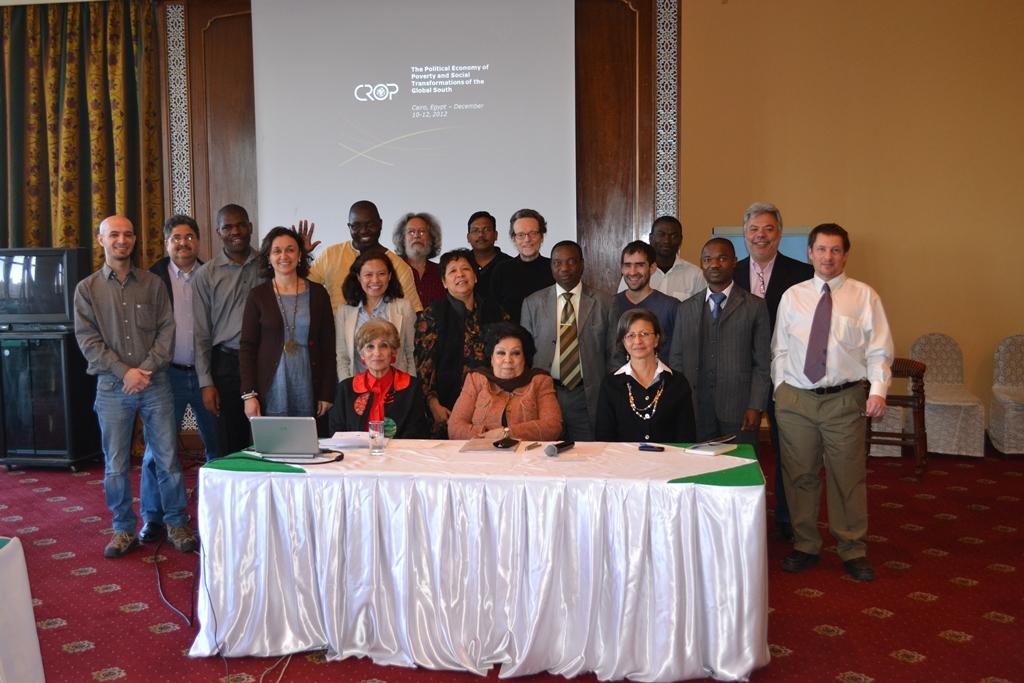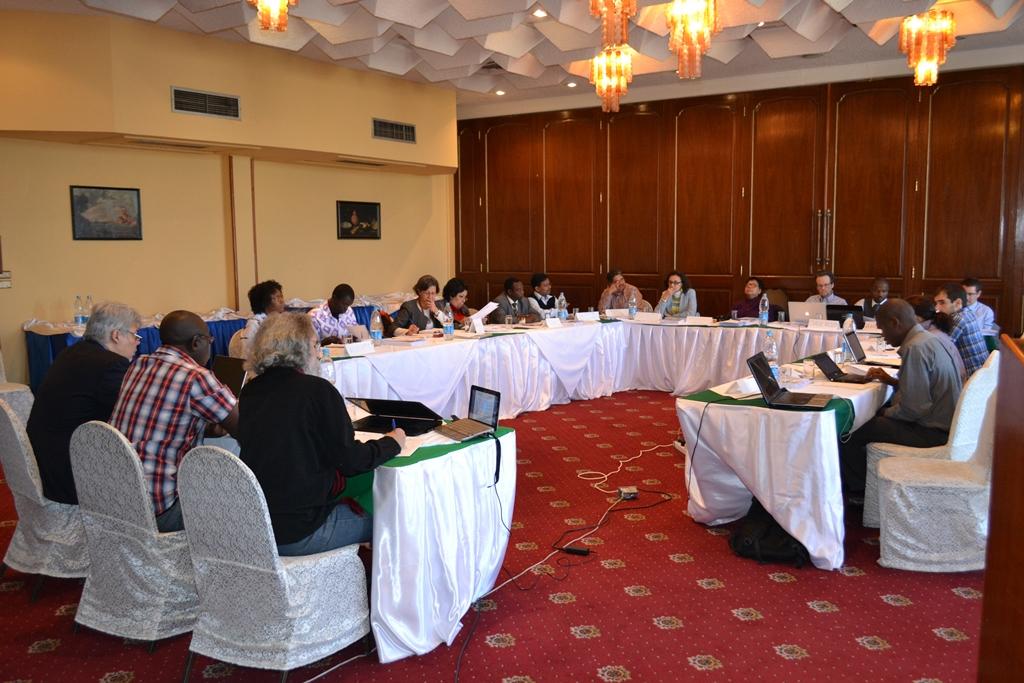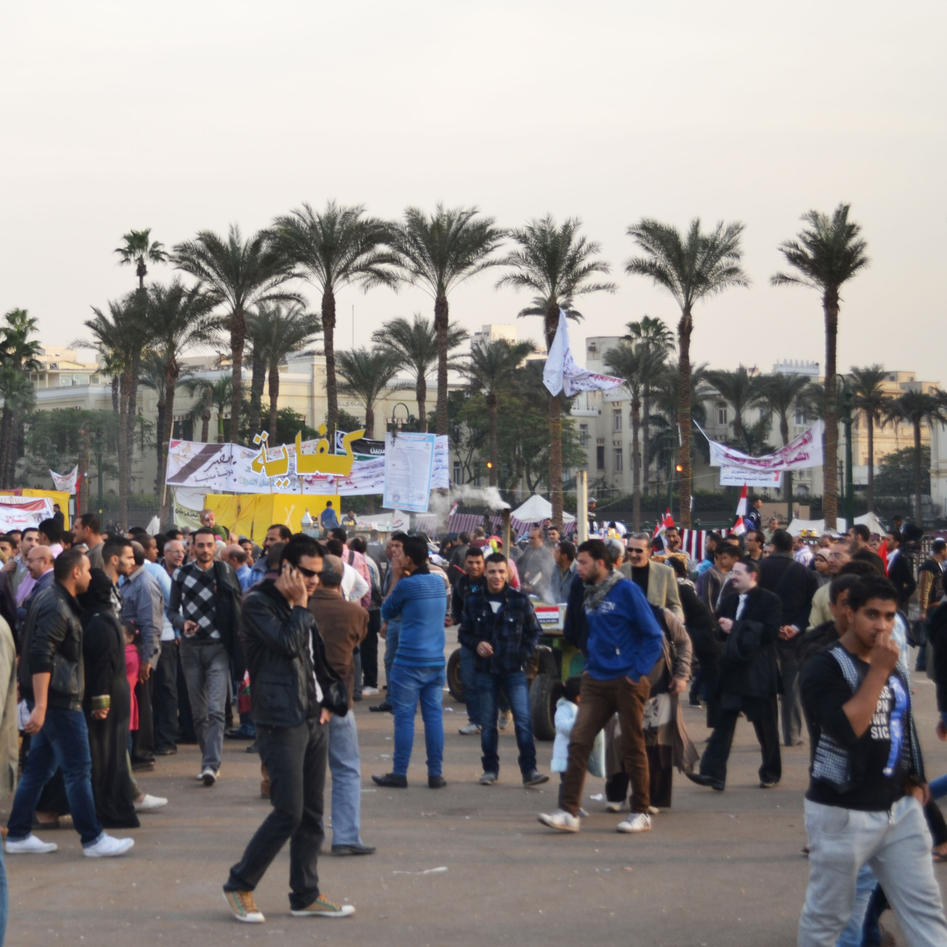In Restless Cairo, a Workshop on Poverty and Social Transformations
An international workshop on “The Political Economy of Poverty and Social Transformations of the Global South” took place in the Egyptian Capital, December 10-12.
Hovedinnhold
The workshop in Cairo was organized by the Comparative Research Programme on Poverty (CROP), the Arab and African Research Centre (AARC), the American University in Cairo (AUC), the Council for the Development of Social Science Research in Africa (CODESRIA) and the South-South Exchange Programme for Research on the History of Development (SEPHIS).
“One of the most exciting moments this country has ever been living through”
The time and place were certainly relevant and stimulating for holding a vivid debate, as the local co-organizers pointed out when the workshop commenced: “You are joining us at one of the most exciting moments this country has ever been living through”, was the opening statement and sentiment shared by the representatives of the AARC and the AUC, as they welcomed participants from eleven countries in Latin America, Africa, Asia, North America and Europe.
Analysing poverty as a structural problem
Participants presented their papers in five sessions, which examined the multiple links between Social Transformation, Human Rights, Development, Poverty, and Social Movements from different case studies. Although contextual differences were highlighted, social transformation – as defined in the call for papers — was found as the obvious structural response to the persistence of poverty in the South.
There were case similarities that demonstrated that poverty is a structural problem inseparable from power relations that have defined the making and re-making of political economies and society historically – and which have been magnified over the past century. A relational view of poverty emerged through the analysis of socio-economic systems which have produced resources in unprecedented quantities and a high standard of living for a small proportion of the world’s population, while keeping the vast majority in poverty.
Poverty was contextualized under the existing patterns of accumulation and distribution of wealth and power, conveying a vivid sense of how difficult it is to eradicate poverty without altering the ideological, material and institutional basis of social systems in the South as well as the still North-dominated global patterns of production, circulation, and consumption.
A public event on “Poverty, Human Rights and Social Transformation”
In addition to the workshop there were two public events, which were filmed and will soon be available on the organizers’ websites. In the first public event, Thomas Pogge, Chair of CROP’s SC, was the keynote speaker with a lecture on “Poverty, Human Rights, and Social Transformation in the 21st Century”. Pogge presented a comprehensive analysis of poverty during the past two decades that supported his critical view on how the issue is addressed by relevant international organizations.
His approach, rooted in a human right perspective, focused on how important supranational institutional arrangements help marginalize the poor and stifle social transformations in the developing world. He showed statistics on the unprecedented concentration of wealth characterizing the latest globalization period and explained how easily severe poverty could now be eradicated — if an appropriate social transformation were achieved at the supranational level.
Discussing the situation in Egypt
The second public event was a round table session on “Revolution and Social Transformation in Egypt,” which concluded the workshop by relating its theme to the social and political transformations currently unfolding in Egypt. Three distinguished female scholars — Karima Korayem (Professor, Al-Azhar University), Shahida El Baz (Director, AARC) and Hanan Sabea (Professor, AUC) — synthetized the conditions that paved the path toward political change in their country and examined the possible implications of the current revolutionary process on social and economic patterns that condition poverty reduction and prevention.
Hanan Sabea (AUC) and Aaron Rosenberg (El Colegio de Mexico) were elected as editors in the Editorial Committee that will work on developing the workshop papers into a book, to be published in the CROP-ZED Books Series in Poverty Research.


